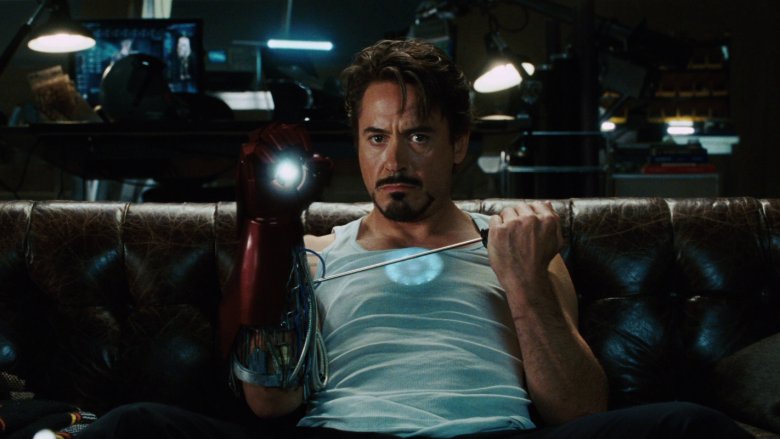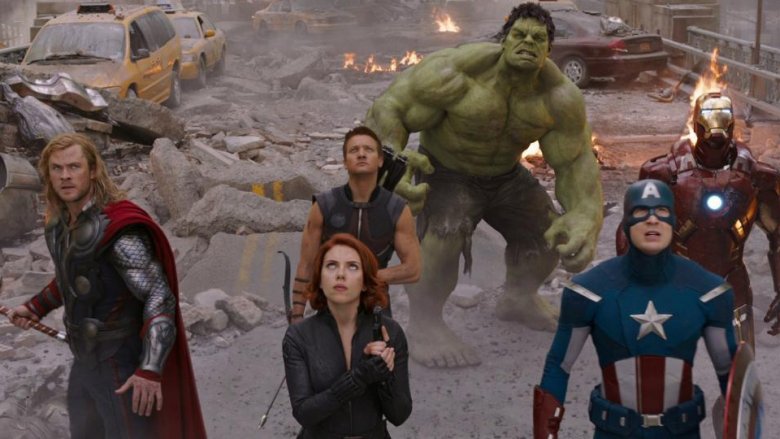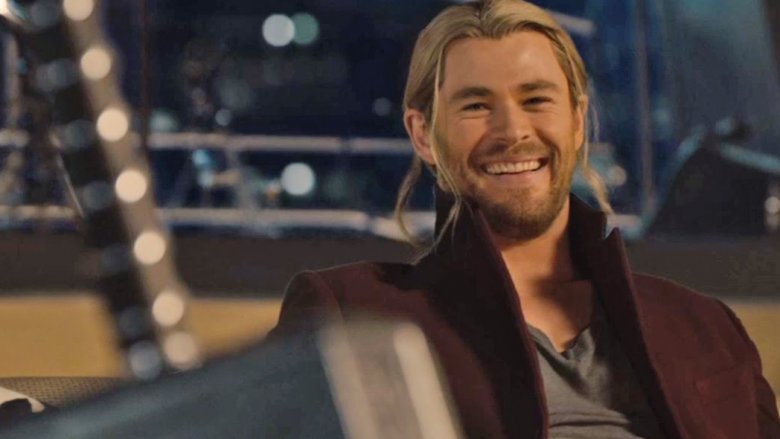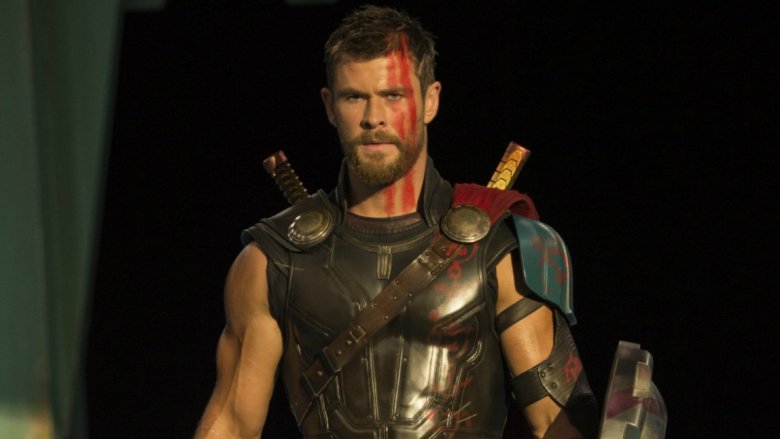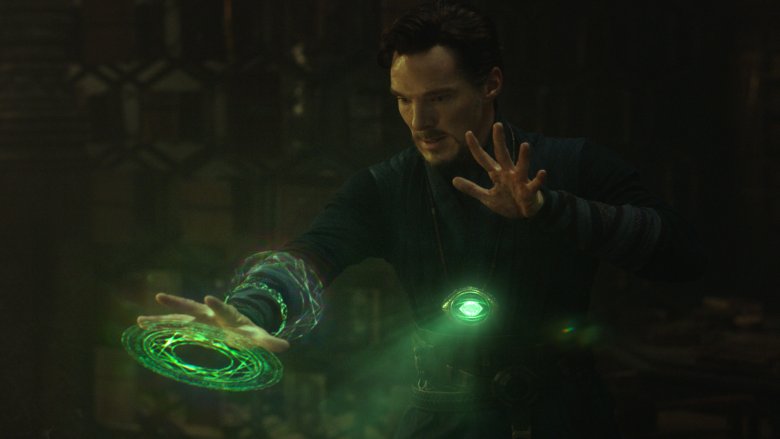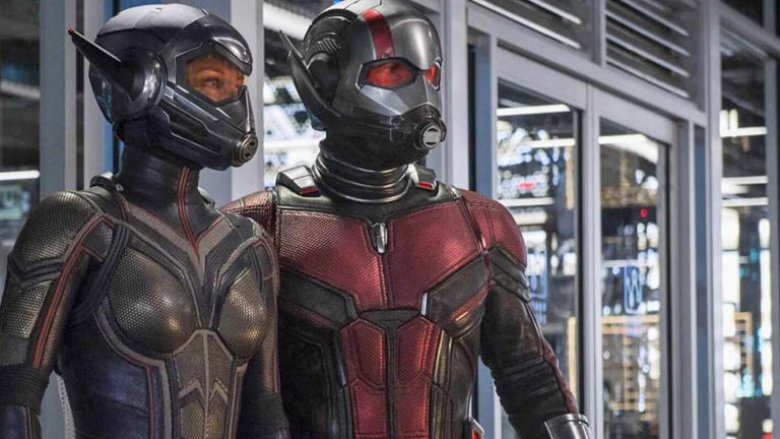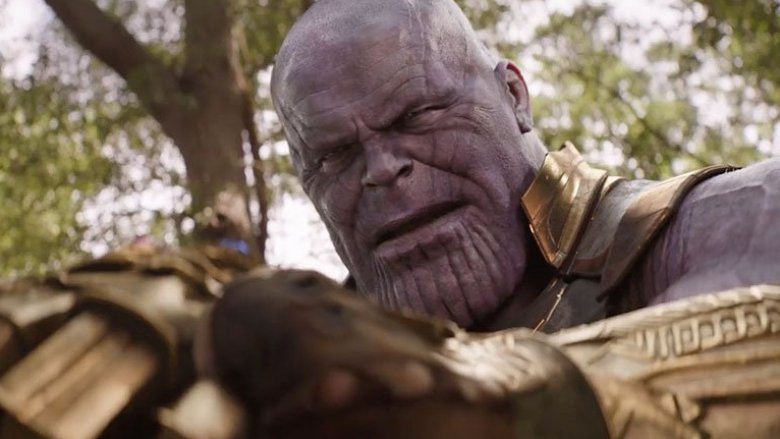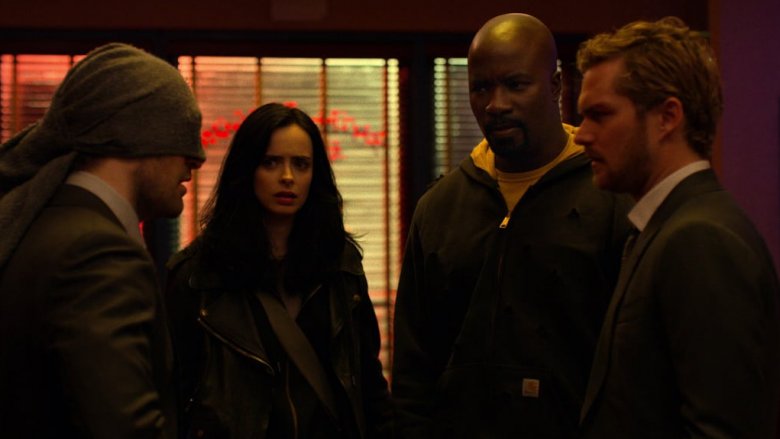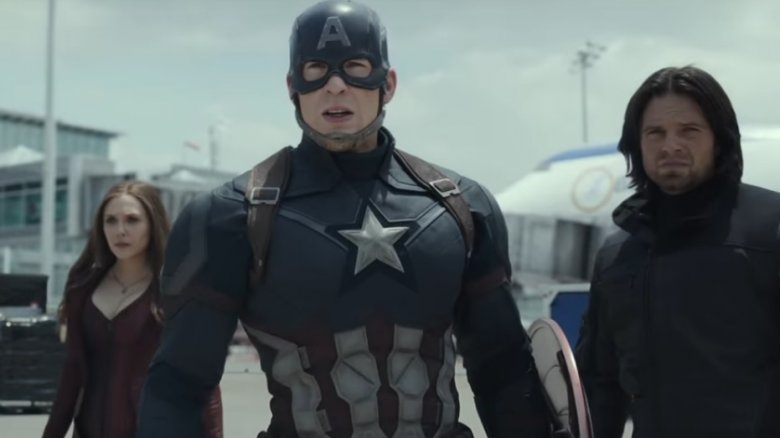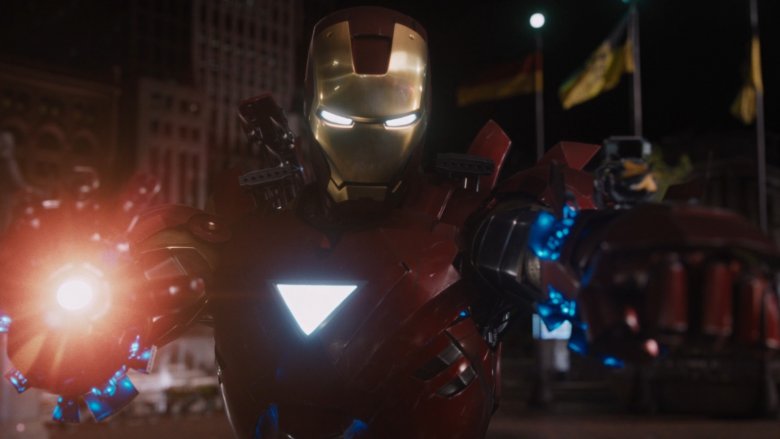Ways The MCU Has Changed Since Iron Man
It's been ten years since Iron Man kicked off the Marvel Cinematic Universe, Marvel Studios' ambitious plan to bring its heroes to the big screen in an interconnected fashion never before seen by moviegoers. Comic fans were stunned by the mere mention of the words "Avengers Initiative" in that first surprise post-credits sequence. Now, a full decade later, we can finally see what studio president Kevin Feige had been planning all along.
The MCU has been a big success since its very first movie, eventually bringing all its heroes together for ensemble flicks like The Avengers and Captain America: Civil War. In that time, Marvel has captured a huge chunk of Hollywood's A-list talent, resulting in films that feature the likes of Robert Downey Jr., Jeremy Renner, Samuel L. Jackson, and Scarlett Johansson all doing battle in the same shot. Marvel's movie budgets have also skyrocketed since the days of Iron Man, though their increased production costs have consistently been met by even greater box office returns. All of this growth and unprecedented success has been the cause for, and the effect of, quite a few alterations that Feige and company have made to the MCU as it has progressed, and they've got more developments on the horizon. Let's take a look at some of the ways the MCU has changed over the past ten years.
Putting the "fiction" in science fiction
Back in 2008, Marvel kicked off the MCU with Iron Man, a movie that tackled topical matters like the United States' war on terror in the Middle East. Given that heavy, real-world backdrop, Iron Man kept its story relatively grounded. Tony Stark spent a good chunk of the movie tinkering with scraps in a cave, then researching and developing a more formal suit of armor. After that, he shot a few terrorists, flew around a little, killed his mentor, and called it a day. It was a believable sci-fi story about a man pushing the limits of real-world technology, with a plot wholly grounded in the geopolitical landscape of 2008.
Fast-forward ten years later, and now Iron Man has developed a suit of liquid nano-armor that enables him to fight alongside wizards on fictional planets. We're now in a universe where talking raccoons are waving around light machine guns, sentient trees are riding in spaceships, and Captain America is throwing down with alien lizards in hidden nations. Little, if any, of the current MCU represents any facet of reality. Gone are the days of Iron Man 2 and Captain America: The Winter Soldier, where Tony Stark tangoed with bureaucrats and Captain America tackled corruption in Washington D.C. Now it's all about defeating purple guys with magic gloves and taking down bad dads who happen to also be living planets. Needless to say, things have gotten a lot more fantastical.
Pour on the laughs
There's no denying it: the Marvel Cinematic Universe has been steadily injecting a lot more humor into each of its films since the beginning. Iron Man remains the least laugh-loaded movie in the MCU, relying mainly on Downey's charm and situational humor to fuel most of the film's titters, with not a lot of clear-cut jokes infiltrating the dialogue. The same could be said for the other Phase One movies, where the comic relief was of a mostly subtle and observational nature. A prime example of this is Thor's "Another!" moment, which garnered chuckles simply by playing up Thor's fish-out-of-water personality.
Then came Joss Whedon's Avengers, loaded with witty quips and snarky one-liners, and the MCU began a strong tilt towards comedy. This slant can be seen picking up steam throughout the Avengers sequels, Ant-Man's flicks, and even Doctor Strange. Though they occasionally rely on the old Phase One style of comedy derived from quirky situations or insecure characters using humor to deflect, a lot of the films are simply written to have a lot more jokes in general. The phenomenon hit a peak with the outright laugh-fests of Guardians of the Galaxy Vol. 2 and Thor: Ragnarok. Though the trend itself is undeniable, the question remains: is this uptick in comedy a good thing? That's a matter of taste.
From zero to Asgardian hero
Thor's had quite the ride in the Marvel Cinematic Universe over its first ten years. He started out in Thor as a hotheaded Asgardian jock with a bad attitude, who became a bit more humble and likeable by the end of the film. Then in Thor: The Dark World, he was a pleasant fellow and dutiful hero who still retained the best aspects of his jock personality. These first two movies didn't win a lot of people over, even though Thor was a fine character in both. This likely stems from the fact that, while enjoyable, Thor wasn't doing much besides filling a classical Shakespearean hero archetype. He learned lessons, acted bravely and chivalrously, and saved the day while fighting his sinister brother (his thematic foil). This character structure has been done for hundreds of years and, for that reason, didn't woo a lot of people.
Then came Ragnarok, which radically altered Thor's character. He stopped being quite as chivalrous and got a little more snarky and a lot more self-aware. He started cracking jokes and preemptively screwing over his ever-villainous brother. He quit being such a gullible jock. He lost an eye. A lot of unexpected changes happened that gave Thor a unique identity. And Infinity War continued the trend by morphing him into a grieving, vengeful king who almost took down Thanos. The God of Thunder has come a long way from his trope-entrenched origins.
Rise of the C-listers
Kicking off the MCU with Iron Man, Captain America, and Thor was as safe an idea as Marvel Studios could manage back in '08, given their inability (at the time) to use X-Men characters or Spider-Man. After Marvel had accrued enough public goodwill, though, it stopped playing softball with its audience, inducting scores of quirky B- and C-list characters into the MCU. Quite a few people doubted the feasibility of a movie like Guardians of the Galaxy, wondering if anyone would seriously want to pony up ticket money to see talking raccoons and actors caked in green body paint square off against intergalactic threats. But Marvel ensured that its odd properties received the right creative treatment, and the result was Guardians blasting away expectations at the box office.
This opened the floodgates for even more weird or underappreciated characters, with the likes of Ant-Man, Doctor Strange, and Black Panther all getting shots at the limelight shortly thereafter. All of these characters' movies turned out to be financial successes as well, proving that Marvel could release a movie about any of its many heroes and still rake in the dough. Shrinking men? Sure. Wizards? Yep. Secret cat-costume-wearing kings hiding in plain sight in Africa? Why not? Over its ten years of storytelling, the MCU has learned that the best way to grow a franchise is to keep taking risks. In this case, that means playing with some of the weirder figures in its toy box.
The MCU variety platter
Back when it was just The Incredible Hulk, Iron Man, and Iron Man 2, the MCU was strictly sci-fi. Then came Thor, which injected fantasy into Marvel's cinematic universe, and Captain America: The First Avenger, which took sci-fi into the historical sub-genre. From there, Marvel Studios kept pushing the boundaries of what genres it could tackle through the lens of superheroes. The Avengers was the studio's first ensemble action-adventure, Captain America: The Winter Soldier gave audiences a political thriller, Ant-Man acted as the MCU's first superhero comedy—you get the idea.
Marvel never settled for making everything a sci-fi superhero adventure, and quickly worked on stretching its cinematic umbrella over as many genres as possible. That growth has yet to stop, as evidenced by flicks like Ant-Man and the Wasp, which came close to being the studio's first fully fledged rom-com. If there's a genre you like that Marvel hasn't gone after yet, stay frosty, because it's just a matter of time.
Raising the stakes
Back in 2008, the MCU's stakes were pretty low, as far as superhero movies were concerned. Iron Man was focused on Tony Stark's relationship with his bitter mentor and The Incredible Hulk kept its story centered on Bruce Banner's survival and life on the run. These were personal stories with minimal collateral damage. Captain America: The First Avenger upped the ante a bit with its plot revolving around Red Skull planning to commit untold terrors with the Tesseract, but even that threat was more speculative and ambiguous than it was a guaranteed global doomsday. And in Thor, most of the danger was quarantined to the desert or Asgard.
Then came the alien invasion in The Avengers, and all of a sudden stakes began to rise. In that movie, New York was almost taken over by aliens. In Iron Man 3, the President of the United States was held hostage and the U.S. government narrowly avoided the grip of a terrorist. Age of Ultron saw a robot almost rock the earth into a new ice age. Black Panther's villain was minutes away from starting a genocidal global war. And in 2018, we watched as Thanos eviscerated half of all living beings, with Earth's Mightiest Heroes unable to stop him. Now the question is, how will the MCU up the tension after Thanos is dealt with?
Iron manifest destiny
Iron Man was a litmus test for Marvel Studios to see if there was an audience for something like the MCU. It laid some groundwork, but the movie could stand on its own in the event it ended up being a one-and-done flick. In this sense, it was a fairly isolated movie, as were most of the Phase One films that revolved around introducing a character, telling a compelling story, and leaving audiences satisfied.
Post-Avengers, though, everything changed. Marvel quickly shifted gears, no longer content to just tell stories on the big screen. First came Agents of S.H.I.E.L.D., a TV show that kept in line with the MCU's continuity and dealt with the fallout of The Winter Soldier, Civil War, and other big-screen flicks. Then, the Netflix series began cropping up, giving Marvel an edgier outlet on the small screen that was still perfectly interwoven with the movies' timeline. Before anyone knew it, Marvel had successfully made its cinematic universe into a hybrid that encapsulated not only movies, but TV as well.
Marvel's world extended to every kind of screen, with every property following the movies' canon for a truly integrated universe that constantly referenced events happening in totally different IPs. Now we have over twenty big-budget blockbusters and plenty of TV shows across many different networks, all working towards telling their own slices of the bigger Marvel story. What started as a single sci-fi movie has expanded into something unprecedented in the world of screen storytelling.
From inspired to inspiring
As part of its master strategy to keep fans engaged no matter what the property, Marvel often elects to intertwine its movies' and characters' stories so that, in order to get the full scoop, you have to watch all of the MCU flicks. Case in point: if you hadn't watched Infinity War, the post-credits stinger of Ant-Man and the Wasp wouldn't make sense to you, not to mention that the movie's main plot makes a lot more sense if you've seen Captain America: Civil War beforehand. Connectivity like this has increased a lot in recent years within the MCU, making each installment in the franchise a sort of turbo-charged, theatrically released TV show episode.
This cinematic entwining of plots has caught fire, prompting other studios to try their hand at the MCU formula. Look at the DC Extended Universe for a prime example of this, wherein Warner Bros. and DC used Henry Cavill's second Superman outing as a Justice League set-up flick, branding it Batman v Superman: Dawn of Justice. Similarly, Universal looked to plant the seed of its own Dark Universe with 2017's The Mummy. Neither of these attempts to hop on the MCU zeitgeist panned out very well, though that's certainly not for lack of trying. Warner Bros. and Legendary Pictures are still attempting the feat with Godzilla and King Kong, aiming for a "Monsterverse" franchise (Cthulhu next, please). In short, Marvel Studios' approach has gone from inspired to inspiring.
Rags to riches
Of all the changes the MCU has gone through over its incredible first decade of major movie operations, none have caught the attention of Hollywood (and the world at large) more than the cinematic universe's borderline absurd financial growth. The Phase One movies were all moderately successful and did well enough to sustain themselves. Then came The Avengers, which destroyed the box office and rewrote record books. Even after that massive milestone for Marvel, there was still nowhere to go but up.
Virtually every entry in the MCU kept making more and more money, with sequels climbing the financial ladder just as steadily as entirely new franchises within the Marvel universe, leading to incredible successes for risky prospects like Guardians of the Galaxy and even Marvel's most niche properties like Ant-Man. Now it's not a question of whether a Marvel film will break box office records, but by how much. Age of Ultron, Guardians of the Galaxy, and more recent films like Black Panther and Infinity War have all blown away expectations in the financial sector, morphing Marvel Studios from a respectable operation to a box-office-crushing behemoth of a studio that's dominated the big screen with each and every new entry in the canon.
